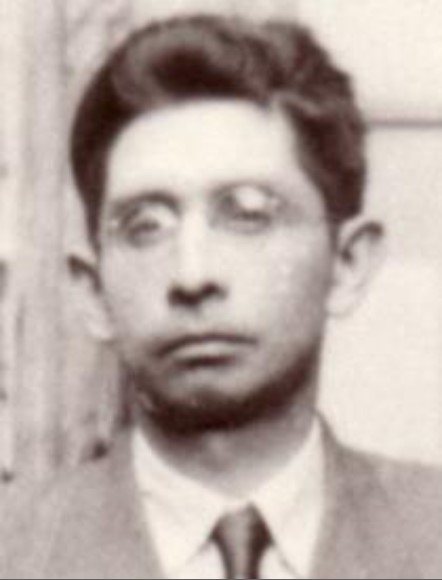Carlos Bazante Morejón (La Asunción, Bolívar, 1914 – date unknown) was an Ecuadorian poet, educator, and writer. He obtained his law degree in Quito and later taught at the “Sebastián de Benalcázar” high school and the University of Esmeraldas. Bazante’s literary work focused on poetry, publishing several collections, including Pecho Agreste (1953) and Yo era un Poeta Provinciano (1983). His writings, deeply rooted in the culture and social issues of Ecuador, appeared in notable publications such as Revista Altiplano and Letras del Ecuador. He is remembered for his contributions to Ecuadorian literature and education.
Early Life and Education
Carlos Bazante Morejón was born in 1914 in La Asunción, a town in the Bolívar Province of Ecuador. He pursued his early education in the nearby town of Chimbo. Later, he moved to Quito, where he obtained a law degree, marking the beginning of a long and diverse intellectual career that would blend both his legal knowledge and his passion for literature.
Academic and Teaching Career
Carlos Bazante was deeply committed to education, contributing through his teaching at the “Sebastián de Benalcázar” high school in Quito. He later extended his teaching to the University of Esmeraldas, where he delivered lectures on literature and linguistics, influencing many students with his intellectual depth and literary insight.
Literary Contributions
Bazante was a prolific writer, publishing his works in various notable Ecuadorian publications. His writings on literature and linguistics appeared in prestigious outlets such as the Revista Altiplano and the Periódico Páginas Culturales, under the auspices of the Bolívar branch of the Casa de la Cultura Ecuatoriana. He also contributed to Letras del Ecuador and the Revista del Colegio Benalcázar. In addition, he wrote for Realidad Bolivarense, a weekly newspaper in Guaranda, as well as other national newspapers.
His published poetry includes several collections, reflecting his evolution as a poet over several decades. These works include:
- Pecho Agreste (Chimbo, 1953)
- Alfarera Mano (Quito, 1959)
- Luz Chiquilla (Guaranda, 1962)
- Avilantez (Guaranda, 1968)
- Yo era un Poeta Provinciano (Guaranda, 1983)
These collections show his deep connection to his homeland and its people, blending personal reflection with social and political commentary.
Philosophy and Reflections on Poetry
In some unpublished reflections that accompanied the release of his work Yo era un Poeta Provinciano, Bazante offered insight into his views on poetry and his role as a writer. He modestly referred to himself as a “versificador” (versifier), rather than a poet in the traditional sense. He viewed his work as a reflection of his life experiences, saying:
“I have only needed to be what I am: a living man and his voice, and for that alone I will call poems what I am versifying here, which is nothing more than the prose of my innumerable days.”
He further emphasized his strong connection to his community, describing his writing as deeply rooted in the world and the people around him.
Themes and Style
Bazante’s work is distinguished by its deep engagement with his homeland. In an article published in Altiplano in 1958, he spoke of how his relationship with his native land had evolved. He noted that Bolívar Province was not just a place of personal memory but a complex entity involving geography, history, economics, society, and politics. He acknowledged the need for critical reflection on Ecuador’s social and political challenges, recognizing them as suitable subjects for poetry. This concern for the wider social fabric and a critique of national development became a recurring theme in his later works.
Legacy
Carlos Bazante Morejón’s legacy as a poet and intellectual is anchored in his commitment to Ecuadorian culture, particularly the province of Bolívar. His poetry is marked by a deep attachment to the land and a critical eye toward its challenges. Though he humbly viewed himself as a simple versifier, his works reflect a profound engagement with social issues and an enduring love for his homeland. His contributions to literature and education have left a lasting impact on both his local community and Ecuadorian literary circles.
Selected Works
- Pecho Agreste (Chimbo, 1953)
- Alfarera Mano (Quito, 1959)
- Luz Chiquilla (Guaranda, 1962)
- Avilantez (Guaranda, 1968)
- Yo era un Poeta Provinciano (Guaranda, 1983)
References
- “Carlos Bazante Morejón.” Casa de la Cultura Ecuatoriana Benjamín Carrión. Retrieved on September 24, 2024.

